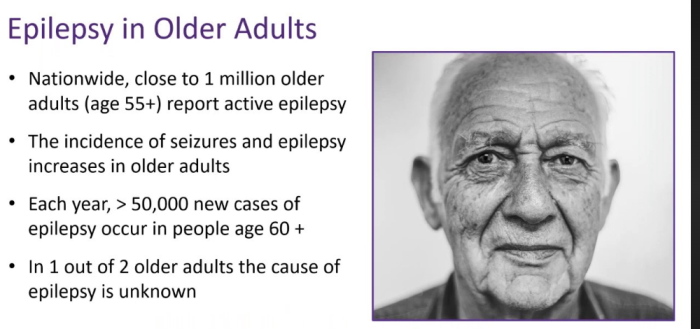Epilepsy surgery offers hope to many patients who do not respond to medications, but its success can be influenced by various factors, most notably age and overall health. While younger patients may have more favorable outcomes due to better brain plasticity and recovery capacity, older patients may face higher risks due to age-related health complications. The success of the surgery depends not just on the surgical procedure itself, but also on the patient’s pre-surgery health status, medical history, and lifestyle choices. This blog explores the intricate relationship between age, health conditions, and surgical outcomes to help patients understand what they can expect before and after the procedure.
Epilepsy Surgery Outcomes: How Age Affects Success Rates
Age plays a significant role in determining the success rates of epilepsy surgery. Younger patients tend to experience higher success rates due to greater neuroplasticity and quicker recovery times. In contrast, older patients may face challenges such as slower recovery and a higher risk of complications.
Factors Affecting Epilepsy Surgery Success
Several factors influence the success of epilepsy surgery, including pre-surgery seizure frequency, seizure type, and overall health. Younger patients typically have better outcomes due to their body's ability to adapt and heal faster.
Importance of Pre-Surgery Assessment in Older Patients
Pre-surgery assessments are vital for older patients as they help identify risk factors that may affect surgery outcomes. This includes evaluating cognitive function, heart health, and other age-related conditions that could impact recovery.

Neuroplasticity and Its Impact on Recovery After Epilepsy Surgery
Neuroplasticity, the brain's ability to reorganize and adapt, is crucial for recovery. Younger patients have better neuroplasticity, which contributes to faster healing and improved seizure control after surgery.
Impact of Chronic Health Conditions on Surgical Risk
Chronic health conditions, such as heart disease or diabetes, can increase the risk of complications during and after epilepsy surgery. Older patients are more likely to have such conditions, which can complicate the recovery process.
Seizure Control Effectiveness in Older Patients
While epilepsy surgery can effectively reduce seizures in older patients, the overall effectiveness may be less than in younger patients due to age-related brain changes and slower recovery rates.

Cognitive Assessment Before Surgery: A Necessity for Older Patients
Pre-surgery cognitive assessments help determine the risk of cognitive decline and help in planning the most effective treatment approach for older patients. These assessments are critical in minimizing post-surgery complications related to memory and learning.
Postoperative Rehabilitation for Older Patients: A Tailored Approach
Postoperative rehabilitation is especially important for older patients to ensure a smooth recovery process. A tailored rehabilitation plan that focuses on physical therapy and cognitive recovery can help improve overall outcomes.
Understanding the Causes and Risk Factors of Epilepsy
Get informed about the causes and risk factors of epilepsy, including genetic predispositions, head injuries, infections, and environmental triggers. Understanding these factors can help in early detection and prevention strategies.
Psychosocial Impact of Epilepsy Surgery on Older Patients
For older patients, the psychosocial impact of undergoing epilepsy surgery can be significant. Emotional well-being and mental health support are crucial for a successful recovery and long-term seizure management.
Long-Term Follow-Up for Older Patients Post-Surgery
Older patients require more frequent and detailed long-term follow-up after epilepsy surgery. This includes regular neurological evaluations and monitoring for potential complications such as seizure recurrence.
Pre-Surgery Evaluation for Elderly Patients: Key Considerations
Before surgery, elderly patients need a thorough evaluation of their physical health, mental status, and seizure history to ensure they are suitable candidates for epilepsy surgery.
Mental Health Considerations for Older Patients Undergoing Surgery
Mental health is a critical factor in the recovery of older patients after epilepsy surgery. Addressing issues like depression or anxiety can help improve postoperative outcomes.
The Role of Support Systems in Post-Surgical Recovery
A strong support system, including family and caregivers, is essential for post-surgery recovery. Emotional and practical support can help patients manage the physical challenges of recovery, as well as reduce anxiety and improve overall well-being.
Impact of Pre-existing Seizure Frequency on Surgical Outcomes
Patients with high seizure frequency prior to surgery may face different challenges than those with fewer seizures. Frequent, uncontrolled seizures may result in more damage to brain function, affecting recovery.
Best Epilepsy Surgery Treatment in India
The Best Epilepsy Surgery Treatment in India is performed by expert neurologists who use advanced techniques to ensure optimal outcomes for patients, offering a personalized treatment plan tailored to individual health needs.
Best Epilepsy Surgery Hospitals in India
The Best Epilepsy Surgery Hospitals in India are equipped with state-of-the-art technology and facilities, providing top-notch care, including pre-surgery consultations, surgical expertise, and post-operative recovery support to ensure a smooth patient journey.
Epilepsy Surgery Cost in India
When considering the Epilepsy Surgery Cost in India, patients benefit from affordable and transparent pricing at leading hospitals, which offer cost-effective treatment options without compromising the quality of care.
Best Epilepsy Surgery Doctors in India
The Best Epilepsy Surgery Doctors in India are highly experienced in performing the surgery, utilizing a patient-centric approach that ensures personalized care, precise surgical techniques, and dedicated follow-up care to enhance recovery.
How Advanced Age Increases the Likelihood of Surgery Failure
Advanced age can increase the likelihood of surgery failure due to factors such as reduced brain adaptability and slower recovery. Older patients may experience less effective results from surgery.
The Role of Physical Fitness in Post-Operative Recovery
Maintaining good physical fitness before surgery improves circulation, immune function, and overall recovery after surgery, reducing complications and promoting faster healing.
Impact of Nutritional Status on Epilepsy Surgery Outcomes
Proper nutrition is essential for optimal recovery after surgery. A balanced diet rich in protein and vitamins helps speed up healing and improves immune function.
Does Age Play a Role in the Long-Term Success of Epilepsy Surgery?
While epilepsy surgery may be successful for both younger and older patients, age impacts the long-term success. Older patients may struggle with maintaining seizure control over time.
The Role of Genetic Factors in Surgery Success Across Different Age Groups
Genetic factors can influence the success of epilepsy surgery. Specific genes that affect seizure activity may impact outcomes differently based on the patient's age.
Designing a Postoperative Care Plan for Elderly Patients
Elderly patients require a tailored postoperative care plan that considers their medical history, cognitive abilities, and potential for complications to ensure a smooth recovery.
Frequent Monitoring and Reassessment After Surgery for Older Patients
Frequent monitoring after surgery is crucial for older patients to detect any signs of seizure recurrence, cognitive decline, or other complications.
How to Prepare Older Patients for Epilepsy Surgery
Preparing older patients for surgery involves pre-surgery evaluations, physical assessments, and thorough discussions about the risks and recovery expectations to ensure the best possible outcome.
Outcomes for Older Patients with Comorbidities Undergoing Epilepsy Surgery
Patients with comorbidities, such as hypertension or diabetes, face additional challenges during and after surgery. Managing these conditions carefully can improve postoperative outcomes.
Epilepsy Surgery vs. Non-Surgical Treatment Options for Older Patients
In some cases, non-surgical treatment options, such as medication or vagus nerve stimulation, may be preferable for older patients, especially if surgery presents higher risks.
Research on Epilepsy Surgery and Age-Related Factors
Recent research studies have focused on how age impacts epilepsy surgery outcomes. These studies aim to provide a clearer understanding of the long-term effects of surgery across various age groups.
Living with Epilepsy Post-Surgery: What to Expect
Post-surgery, many patients experience a reduction in seizure activity, but some may still face challenges. It is essential to have a support system and follow a comprehensive treatment plan to maintain long-term seizure control.
FAQs About the Impact of Age on Epilepsy Surgery Outcomes
What is the average success rate of epilepsy surgery for older patients?
The success rate of epilepsy surgery in older patients varies, but generally, it is lower than in younger patients. Success depends on factors like the severity of seizures, age-related health issues, and neuroplasticity.
What are the common complications for older patients after epilepsy surgery?
Common complications in older patients include cognitive decline, infection, delayed healing, and seizure recurrence.
How can I improve recovery after epilepsy surgery if I'm over 60?
Improving recovery involves maintaining physical fitness, ensuring proper nutrition, and having a strong support network to assist with rehabilitation.